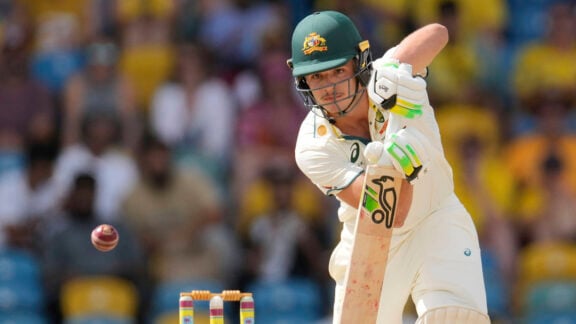Few people would have noticed Andreas Govas’ return to Melbourne. Hidden away, the 23-year-old central midfielder has been training out of sight with the Oakleigh Cannons for a week to get back into form.
Oakleigh Cannons coach Miron Bleiberg barely noticed the new player training alongside his team, until Govas made an effortless trick kick.
He’s made the pitstop at Oakleigh to help him prepare for pre-season in the Greek Superleague after he couldn’t get a flight back in time for the first training session.
Govas plays for Kalloni Lekanopedio FC on the island of Lesvos. Kalloni narrowly made it into the Superleague this year, promoted from the second division to make a bigger and more competitive professional league.
The small team has strong financial backing (thanks to a wealthy local investor) and is a promising addition to the League that is beginning to crack under financial pressure.
Govas joined the team late last year and has helped it progress exponentially.
“It’s a small team (Kalloni). They started four years ago, and they’ve gone up three divisions,” he tells Neos Kosmos.
Govas is hoping the newly promoted team will start strong and be a competitive team against the older, more experienced clubs.
“Hopefully the team does well, I’m not too sure what the team’s goals are specifically, whether they’re trying to get top spot in the league or if they’re just going to try and survive,” he says.
“At the moment they’ve signed a few new players, we’ve got some high level players and we’ll do really well in the League.”
Kalloni sealed their fate earlier in the year, after they drew in a knockout game against Olympiakos Volou.
Govas counts the game as one of his favourite moments in professional football.
“The whole island is like 90,000 people, everyone tried to get into the stadium,” he says.
“The whole stadium was full, it was packed. People were up on the walls, sitting on them, even in trees people were trying to see the game.”
Govas has been lucky in his professional career. Starting out at 17, Govas signed to Portsmouth FC in the Premier league.
That year in the youth squad, Govas would see the seniors team win the FA Cup.
He remembers training with the seniors a couple of times and describes the players as “incredible, superstars really”.
When his contract finished up, he signed to numerous Greek clubs, and got the chance to play for his father’s home team, AO Kavala.
But it took him a couple of years to find a routine that ensured he got the most play time.
“I struggled at the start of my career, a lot of injuries,” he says.
“It took years to learn that every day you can’t go 100 per cent. You have to listen to your body. I’d go to training everyday and give it my all and always want to do my best, but some days you might feel a bit tight in your quad or your hamstring and if you go 100 per cent you might end up injured. Sometimes you have to be smart.”
Playing professionally wasn’t in the cards for Govas for a long time. In the shadow of his older brother, who lived and breathed the game, Govas would somewhat reluctantly tag along on his father’s training sessions. It was at the age of 13 that he started to take it seriously.
“One day I remember, I was sitting at home I would have been about 12-13-years-old and I thought to myself, should I be a soccer player? I decided in that moment, ok, I’m going to do it,” he remembers.
“I said, what do I have to do, so I pulled out a book and I wrote what I think I need to do to improve and I wrote all my strengths and weaknesses down.”
Govas still holds that methodical approach to his job. He sets goals constantly to keep his skill base fresh while remaining humble. That perseverance has kept him in high demand in Greece at a time where many are fleeing the industry thanks to a flatlining economy.
“The crisis has killed soccer in Greece,” he says.
“Five ten years ago players would get decent money, even in the lower divisions. Since the crisis, all that has been cut. Players used to play for €100,000 a year, are now looking for contracts for €10,000 or €20,000 a year.”
At least for Govas, he’s picked one of the more stable teams. Now he will be focusing on getting as much play time as possible to attract some well deserved attention. Watch this space.






